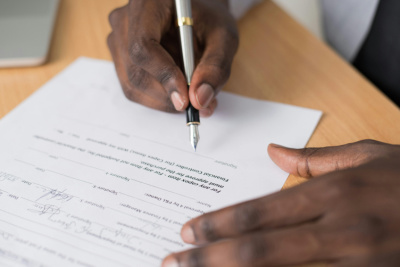One of the frequent questions we get from clients is, “I don’t know if I have a trust, or not.” Here are three easy ways to find out.
But before we get into it… We are financial advisors in Morristown, NJ, providing financial advice for New Jersey residents as well as folks across the country. Before we get started, you may want to check out these financial planning blogs we’ve written:
Filing your tax return: traps to avoid
Retirement Account Contribution Amounts – 2024 changes!
Do I have to pay taxes on an inherited annuity?
Let’s go!
What is a trust, and why do I need one?
First, let’s clarify what a trust actually is.
You (and your lawyer, probably) can create a set of legal documents that allows you to transfer your assets into a legal entity called a trust. It is managed by a third party called the trustee. For investment accounts, this means opening an account in the name of the trust with the trustee listed as the person who is responsible for controlling it. There are specific beneficiaries named, and they have a legal right to those assets.
People have trusts for these reasons:
- Controlling who has access to the inheritance you are leaving behind,
- Controlling the method of distribution of the inheritance you are leaving behind,
- Tax planning,
- Privacy,
- Asset protection, and
- Avoiding probate.
How do I know if I already have a trust, or not?
Most people set up an estate plan and don’t touch it for decades. As time goes on, it’s natural to forget what you put in place. Many people aren’t sure if their estate planning documents are for the creation of a will, a trust, neither, or both!
Here are three simple ways to find out:
Step #1
Ask yourself, do any of your accounts or assets have the word “trust” in the title?
Step #2
Look at all your estate planning documents. Do any say the word “trust” in the name?
Step #3
If you haven’t found any trusts yet (in Steps #1-2), read through your will. Does it mention any trusts?
If the answer to any of the above questions is “yes,” you likely have a trust.
One caveat…
Now here’s where it gets tricky.
There is a special type of trust that is actually created within a will document. There may not be any other document that creates this trust. The trust may be completely defined by your will in these circumstances.
Here are terms for that type of trust:
- Springing trust
- Testamentary trust
- Contingent trust
- Trust under will
If you think you may have a testamentary trust but aren’t sure, reach out to a financial advisor or estate attorney. Going further into the definition of these terms goes beyond the scope of this blog; but if you stay tuned for future posts, we’ll likely delve into it there.
Did our insights help at all?
It’s best to consult with your estate attorney to know for sure if you have a trust or not. We at Glassner Carlton are not lawyers – this is all general guidance that can not be interpreted as legal advice specific to any one individual. If you require recommendations for your specific situation, talk to your attorney.
We are financial advisors in Morristown, NJ serving the local community and beyond. If you have questions about managing your money in a way that jives with your plan to retire in New Jersey or elsewhere, or (like us) are just plain old Bruce Springsteen fans, reach out and send us a message.
We are writing a series on estate planning and its impact on retirement. If this is of interest, please subscribe to our newsletter to be notified when new blogs are published.

